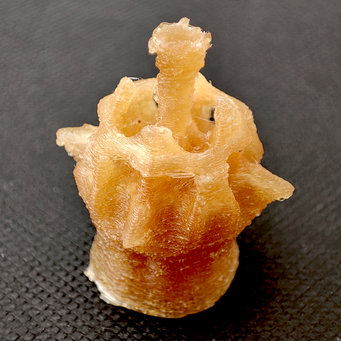2023-07-31 アリゾナ大学
◆アリゾナ大学の研究者たちは、単に出来事を思い出すだけでもこれらの振動がトリガーされることを発見しました。実際の出来事を経験するよりも、記憶がより多くの振動を引き起こすという結果です。特に彼らは脳の海馬領域で現れる「シータ振動」に焦点を当てました。これは探索、ナビゲーション、睡眠などの活動中に生じるもので、過去の記憶に脳の海馬が重要な役割を果たすことが知られています。
◆今回の研究結果は、脳損傷や認知障害の患者の治療に影響を及ぼす可能性があります。脳内から記憶を刺激してシータ振動を駆動させることで、時間の経過とともに記憶の改善につながる可能性があるとされています。
◆将来的には、自由に歩く患者と対照して、脳の振動に関して自由なナビゲーションと記憶を比較する研究を行う予定です。これにより、オリジナルの経験中とその後の回想中の振動を直接比較し、新たな実験の設計や記憶の神経基盤を理解する上での重要な進展が期待されています。
<関連情報>
- https://news.arizona.edu/story/new-uarizona-study-links-brain-waves-directly-memory
- https://www.sciencedirect.com/science/article/abs/pii/S0896627323004749
ヒトの海馬シータ振動の主要な原動力は記憶関連処理である Memory-related processing is the primary driver of human hippocampal theta oscillations
Sarah E. Seger, Jennifer L.S. Kriegel, Brad C. Lega, Arne D. Ekstrom
Neuron Published: July 18, 2023
DOI:https://doi.org/10.1016/j.neuron.2023.06.015
Summary
Decades of work in rodents suggest that movement is a powerful driver of hippocampal low-frequency “theta” oscillations. Puzzlingly, such movement-related theta increases in primates are less sustained and of lower frequency, leading to questions about their functional relevance. Verbal memory encoding and retrieval lead to robust increases in low-frequency oscillations in humans, and one possibility is that memory might be a stronger driver of hippocampal theta oscillations in humans than navigation. Here, neurosurgical patients navigated routes and then immediately mentally simulated the same routes while undergoing intracranial recordings. We found that mentally simulating the same route that was just navigated elicited oscillations that were of greater power, higher frequency, and longer duration than those involving navigation. Our findings suggest that memory is a more potent driver of human hippocampal theta oscillations than navigation, supporting models of internally generated theta oscillations in the human hippocampus.


